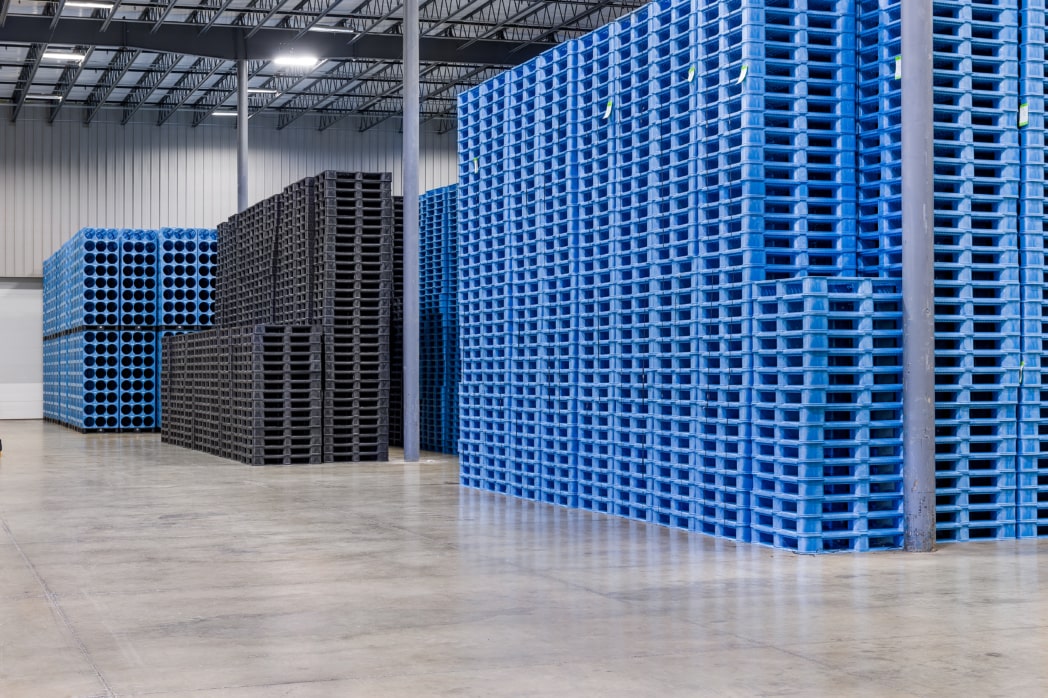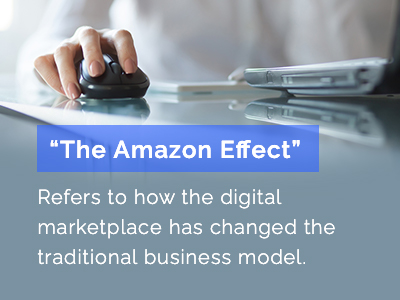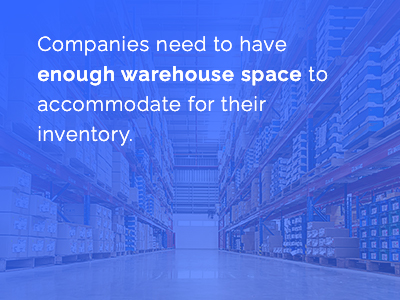What is “the Amazon Effect” on supply chain management? If you haven’t heard of it yet, you will soon. The Amazon Effect refers to how the digital marketplace has changed the traditional business model. Of course, it takes its name from the online behemoth Amazon.com and has specific ramifications for supply chain operations. Since Amazon is the world’s leading online retailer, its impact on supply chain strategy was inevitable. But how have Amazon and other online retailers transformed supply chain management?
1. Continuous Fulfillment
Customers are no longer satisfied with a distribution company that collects orders and fills them at the end of the day. Online marketplaces are open around the clock, and people often want overnight or next-day delivery. That means a system must be in place to process orders immediately, so the delivery company can pick up the item from the warehouse and send it down the line right away.
Browse Our Material Handling Products
2. More Intensive Management
Naturally, more order fulfillment and faster distribution will require more management and better inventory control. Distributors must hire competent management personnel, often using state-of-the-art logistics software, to make sure the accelerated supply chain continues to function effectively at all times. Multi-tier inventory management can help companies reduce overall delivery time and remain competitive in the online marketplace.
3. Better Automation
Automation is already a critical part of most shipping supply chains. With around-the-clock deliveries, your automated processes need to be faster and more efficient. The future of supply chain automation will see robots completing most warehouse activities without human assistance. Suppliers must invest in state-of-the-art machines and automation technology to keep up with demand.
4. Bigger Warehouses
Companies that find themselves having to search for or manufacture new products when customers order them will fall behind. Companies need to have spacious enough warehouses or a large enough number of warehouses to contain as much inventory as they need, ensuring there will always be enough products to fulfill any order at any time.
5. Last-Mile Logistics
Getting a product that “last mile” — that bit of distance from the local receiving center to the recipient — on time has always been a challenge, but it is one that Amazon seems to have mastered. Depending on third-party logistics tends to lengthen the overall delivery time. That’s why Amazon supply chain primarily relies on its fleet of vehicles to meet increasingly fast delivery promises. Today’s supply chain managers must find new and innovative ways to cross that last mile.
6. Reversing the Inventory and Logistics Dynamic
In the past, many companies have had a strategy of outsourcing logistics and insourcing inventory. It means using their in-house products but taking advantage of third parties all along the supply chain to deliver them. Amazon’s fulfillment centers do the opposite, offering many products that sit in other parties’ warehouses while managing their own extremely efficient logistics system to get those items to their locations.
Companies often use a pure push strategy for products stored in their regular warehouse. The business forecasts demand for the specific zone and stocks products accordingly. Alternatively, they would use a pure pull strategy when outsourcing inventory to third-party sellers. Companies use more of an order-by-order fulfillment model to sell outsourced products, especially infrequently ordered ones.
For supply chain success, consider a push-pull strategy that uses both types of management depending on specific product demand. Amazon supply chain management heavily relies on the outsourcing of inventory management and insourcing of logistics.
Companies looking to compete in the online retail space will have to consider how much of this model they want to, and can, follow.
Browse Our Material Handling Products
Polymer Solutions International Inc. can help companies streamline and accelerate their supply chains with consistent, durable plastic pallets and other packing, storage and shipping solutions. To find out how, visit our website, call us at 610-325-7500 or get in touch online.








